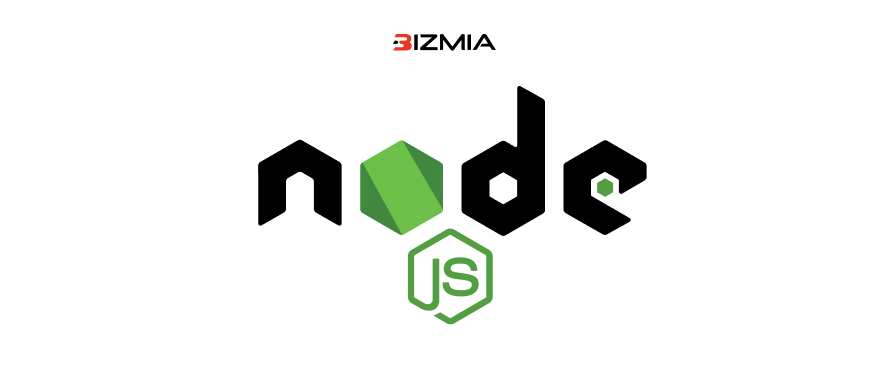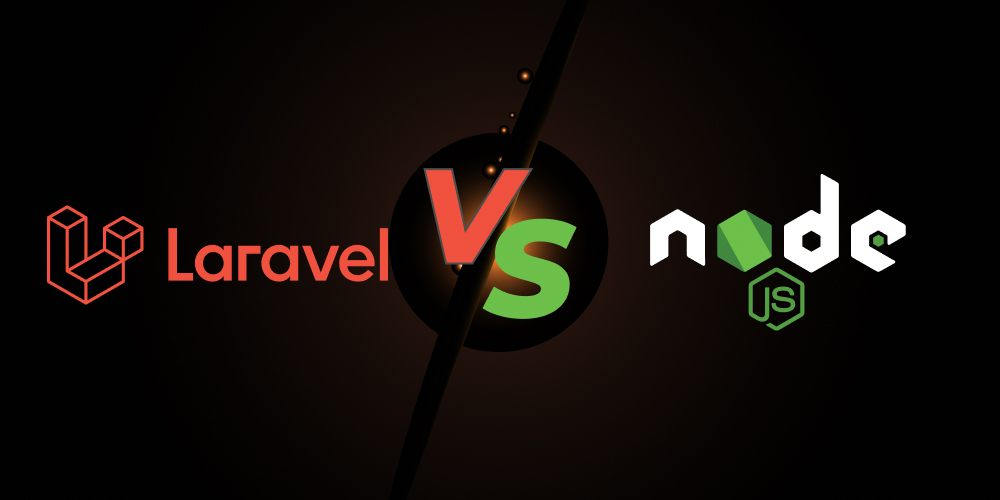Choosing the right backend technology is critical to the success and scalability of any application. Developers today are spoilt for choice when it comes to frameworks and runtime environments, but two names consistently stand out: Laravel vs Node.js. Laravel, built on PHP, has become synonymous with elegant syntax and rapid development, especially for traditional web applications.
On the other hand, Node.js, powered by JavaScript, has disrupted the development landscape by enabling full-stack JavaScript development with its non-blocking, event-driven architecture.
In this blog, we’ll look into what makes Laravel and Node.js unique, how they perform under pressure, and which one is better suited for different kinds of web development projects. From performance benchmarks to developer experience, we’ll explore all the critical decision-making factors.
Whether you’re an entrepreneur looking to hire the right tech team or a developer trying to decide where to invest your time, this comparison will help you make an informed decision.
Overview of Laravel

Laravel is a PHP-based web framework that follows the Model-View-Controller (MVC) architectural pattern. Since its launch in 2011 by Taylor Otwell, Laravel has grown into one of the most popular PHP frameworks in the world. It is well-loved for its clean syntax, comprehensive documentation, and out-of-the-box features that simplify web application development.
One of Laravel’s standout features is Eloquent ORM, which allows for smooth interaction with databases using expressive syntax. It also comes bundled with tools like Blade templating engine, Laravel Mix for asset compilation, and a powerful CLI tool called Artisan. These features make Laravel a go-to choice for developers who want to build robust, maintainable, and scalable web applications.
Laravel also shines in handling tasks like routing, middleware implementation, user authentication, and unit testing. With built-in security measures like CSRF protection and hashed password storage, Laravel enables secure application development from the get-go. Whether you’re building a CRM system, a content management platform, or a custom e-commerce site, Laravel offers a flexible and reliable foundation.
Below are some of the unique features of Laravel.
| Feature | Description |
| Eloquent ORM | Simplifies database interactions with expressive syntax. |
| Blade Templates | Clean, reusable templating engine for frontend views. |
| Artisan CLI | Command-line tool for quick dev tasks and automation. |
| Built-in Auth | Easy setup for login, registration, and password reset. |
| Robust Routing | Intuitive routing system with powerful middleware support. |
Overview of Node.js

Node.js is not a framework but a runtime environment that allows you to execute JavaScript on the server side. Introduced in 2009, Node.js revolutionized web development by enabling developers to use a single language—JavaScript—across both the client and server sides. This seamless integration has made it a favorite among startups and tech giants alike.
One of Node.js’s core strengths lies in its non-blocking, event-driven architecture. This makes it exceptionally well-suited for handling concurrent requests, real-time applications, and data-intensive tasks. Developers can build APIs, microservices, chat applications, and even serverless solutions using Node.js. Its massive package ecosystem—NPM—offers thousands of libraries to speed up development.
Node.js doesn’t impose strict architectural patterns, giving developers the freedom to structure their applications as needed. This flexibility can be both a strength and a drawback, depending on the experience level of the development team. With growing community support, excellent performance benchmarks, and cross-platform capabilities, Node.js is ideal for scalable and modern web applications in 2025.
Below are some of unique features of NodeJS:
| Event-Driven Model | Handles multiple requests asynchronously for better performance. |
| Single Language Stack | Use JavaScript on both client and server sides. |
| Non-Blocking I/O | Fast processing for data-intensive, real-time applications. |
| npm Ecosystem | Access to thousands of open-source packages and libraries. |
| Cross-Platform | Build scalable apps for Windows, macOS, and Linux environments. |
Laravel vs Node.js: Performance Comparison
When it comes to performance, Laravel and Node.js have very different strengths. Laravel, being based on PHP, is synchronous by nature. While PHP has significantly improved over the years with faster engines like PHP-FPM and OPCache, it still handles requests sequentially unless additional asynchronous libraries or tools are introduced.
Node.js, on the other hand, is built from the ground up for non-blocking, asynchronous execution. This gives it a substantial edge in performance, especially for applications that need to handle multiple concurrent connections—such as chat apps, streaming services, or IoT platforms. Node.js can serve thousands of requests with minimal resource consumption thanks to its event-driven model.
Laravel is better suited for CPU-intensive tasks that don’t require real-time data processing. It excels at rendering server-side HTML, handling form submissions, and managing backend business logic with a clean and organized structure. Node.js, meanwhile, is the preferred choice for real-time applications and microservices where speed and responsiveness are critical.
Ultimately, performance should be evaluated in the context of the application’s requirements. For real-time applications, Node.js is the winner. For traditional web applications with complex backend logic, Laravel remains a powerful contender.
Get an overview of the performance comparison in Laravel vs Node.js:
| Aspect | Laravel | Node.js |
| Execution Model | Synchronous (blocking) | Asynchronous (non-blocking) |
| Speed | Slower under high concurrency | Fast and efficient for concurrent tasks |
| Real-time Handling | Not ideal for real-time apps | Excellent for chat, gaming, and live updates |
| Best For | CPU-heavy, traditional web applications | I/O-heavy, real-time, and data-intensive applications |
| Scalability | Scales well with proper architecture | Highly scalable out of the box |
Developer Experience & Learning Curve
The developer experience varies significantly between Laravel and Node.js. Laravel is widely recognized for its beginner-friendly syntax and comprehensive documentation. Developers with basic PHP knowledge can get started quickly, thanks to Laravel’s intuitive structure and built-in features that cover most backend needs. Artisan CLI, routing, Eloquent ORM, and templating with Blade reduce boilerplate code and accelerate development.
Node.js offers a flexible yet steep learning curve. While JavaScript developers may find it convenient to use a single language across the stack, Node.js doesn’t come with a predefined structure or built-in features. Developers often rely on frameworks like Express.js, Koa, or NestJS to organize their code. This flexibility allows for powerful customization but also requires more setup and architectural planning.
Hiring Laravel developers may be easier due to the framework’s structured approach and wide adoption in traditional industries. Node.js developers, on the other hand, often come with full-stack JavaScript expertise and are more common in startups and tech-forward companies. Both ecosystems have active communities, but Laravel’s out-of-the-box experience can save time and reduce complexity for small to medium-sized teams.
| Aspect | Laravel | Node.js |
| Ease of Learning | Beginner-friendly, especially for PHP developers | Steeper learning curve due to setup and ecosystem choices |
| Structure | Predefined structure, opinionated framework | Unopinionated, requires choosing tools/frameworks like Express |
| Built-in Features | Offers routing, ORM, auth, CLI out of the box | Relies on third-party libraries for most features |
| Developer Tools | Artisan CLI, Blade templating, Laravel Mix | NPM, debugger tools, framework-dependent utilities |
| Community Support | Strong PHP community and Laravel ecosystem | Huge JavaScript community with active open-source contributions |
Security and Maintenance
Security is a top concern for any web application, and both Laravel vs Node.js offer strong mechanisms to protect against common threats. Laravel has built-in support for CSRF tokens, SQL injection prevention, and secure password hashing (bcrypt). Its opinionated framework encourages secure practices, making it easier for even junior developers to follow best practices.
Node.js, while secure in itself, depends heavily on the developer’s implementation and third-party packages. Since the ecosystem is vast and less opinionated, it’s easier to introduce vulnerabilities if dependencies are not regularly updated or validated. However, tools like Helmet.js, rate-limiters, and OWASP guidelines can help maintain security in Node.js applications.
In terms of maintenance, Laravel’s structured and consistent updates make it easier to manage long-term projects. Laravel also offers LTS (Long-Term Support) versions, which provide security fixes for extended periods. Node.js releases LTS versions too, but due to the decentralized nature of its ecosystem, maintaining older code can be trickier if packages become deprecated.
Choosing between the two should depend on your team’s discipline, expertise, and the nature of your application. Laravel provides a more controlled environment, while Node.js offers flexibility and speed at the cost of a steeper maintenance curve.
Use Cases & Ideal Scenarios
Laravel is an excellent choice for applications that require a traditional, server-rendered approach. It shines in use cases like content management systems, e-commerce platforms, customer portals, and internal tools. If your project involves complex backend operations, form submissions, authentication, and dashboard views, Laravel’s built-in features offer a significant advantage.
Node.js, on the other hand, is ideal for building real-time and event-driven applications. Think chat applications, live streaming platforms, collaborative tools, and microservices. Its asynchronous architecture makes it perfect for handling multiple simultaneous connections with minimal latency. Node.js is also well-suited for headless applications and APIs that require high performance.
If your team already has JavaScript expertise, Node.js might be the natural choice for a unified development stack. For businesses with existing PHP infrastructure or those that prioritize developer speed and code maintainability, Laravel could be the better option. It’s also worth considering hybrid architectures where Laravel handles core logic and Node.js powers specific real-time features.
Market Trends & Adoption
As of 2025, both Laravel vs Node.js continue to enjoy widespread use across industries. Laravel remains dominant in sectors like healthcare, education, and traditional e-commerce due to its maturity, stability, and vast talent pool. It also benefits from strong community support and an ecosystem of tools tailored for structured web development.
Node.js has grown in popularity among startups, SaaS platforms, and tech-driven enterprises looking for speed and scalability. With the rise of real-time applications and microservices, Node.js has become the go-to for performance-critical environments. Tech giants like Netflix, PayPal, and Uber rely heavily on Node.js, showcasing its enterprise-readiness.
The demand for full-stack JavaScript developers continues to rise, giving Node.js an edge in developer hiring trends. Meanwhile, Laravel maintains its stronghold with a consistent flow of new features, conferences, and learning resources. As companies prioritize rapid development cycles and performance, many are adopting hybrid strategies that leverage the strengths of both technologies.
Final Verdict
Choosing between Laravel and Node.js isn’t about finding a better framework—it’s about identifying which tool best fits your project’s requirements. Laravel is ideal for teams that need a mature, secure, and highly structured environment to build complex web applications efficiently. Its elegant syntax and comprehensive features make it especially suitable for projects where time-to-market and maintainability matter.
Node.js excels in scenarios demanding high concurrency, real-time data handling, and microservice architecture. If performance, scalability, and a unified JavaScript codebase are priorities, Node.js is the better choice. It provides greater flexibility and faster execution for apps that need to handle a large number of simultaneous users.
Ultimately, both Laravel and Node.js are powerful in their own right. Your decision should factor in your team’s expertise, the project timeline, application complexity, and future scaling plans. Many companies even opt to use both—Laravel for backend processing and Node.js for real-time features—demonstrating that collaboration between technologies can often yield the best results.
Hire Developers Within 48 Hours
Are you looking to scale your wen development project? At Bizmia, we provide Laravel and Node.js developers that integrate in your team seamlessly.
Whether you want to create a Laravel project or hire developers to work on existing project of Node.js, our developers provide seamless web development services.
Get in touch with us today and hire the best developers today.
Asked Questions
Which is better for beginners, Laravel or Node.js?
Laravel is easier for beginners due to its clear structure, built-in features, and excellent documentation. Node.js requires more setup and decisions, especially around frameworks and architecture.
Is Laravel faster than Node.js?
Node.js generally offers better raw performance thanks to its non-blocking, event-driven model. Laravel, being PHP-based, is synchronous and slightly slower but more than sufficient for traditional web apps.
Which one is better for building real-time apps?
Node.js is better suited for real-time applications like chat apps or live data feeds due to its asynchronous architecture and WebSocket support.
Who has better community support – Laravel or Node.js?
Both have strong communities. Laravel has a tight-knit PHP-focused ecosystem, while Node.js benefits from the massive global JavaScript developer base.
What about job opportunities?
Laravel is popular in enterprise and small-to-mid-sized business environments. Node.js is in demand at tech startups and companies building modern, scalable systems—especially full-stack JS roles.












